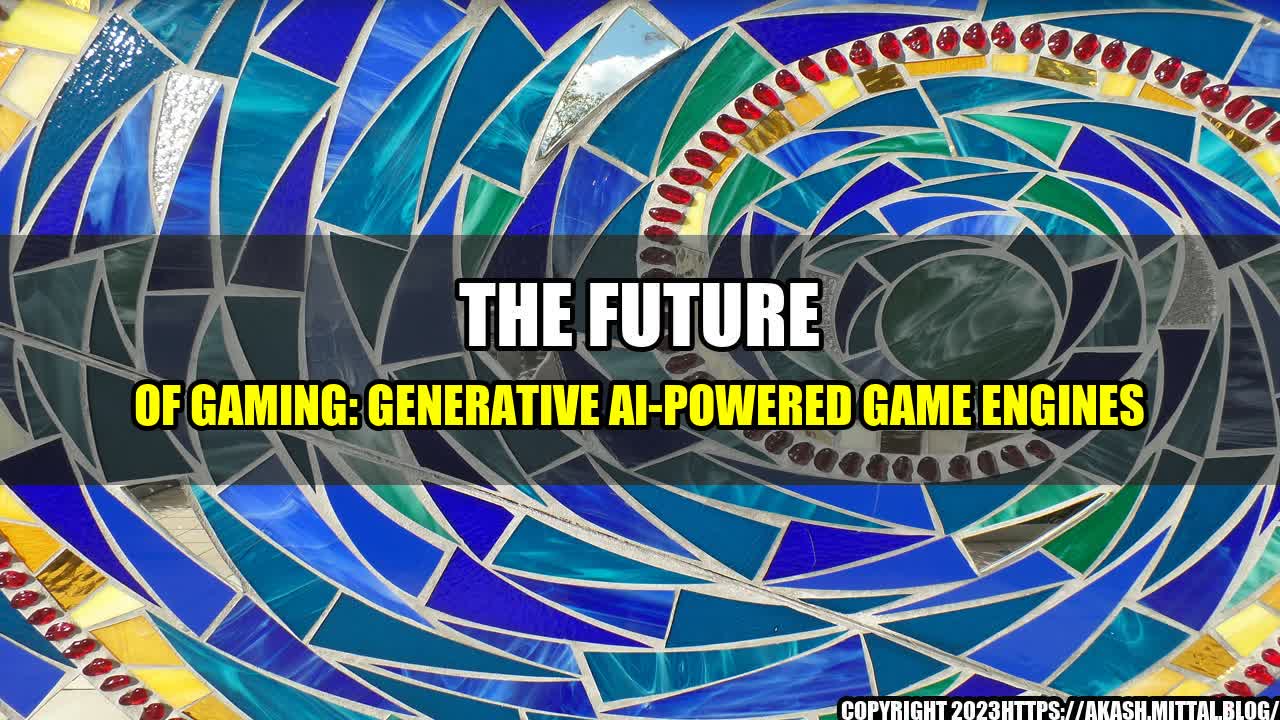
It was a bright summer day, and the game developers at ENDworld were gathered in the conference room, discussing their next project. They had been tasked with designing a new game engine that could generate unique game concepts, art assets, and even gameplay mechanics – all with a single click of a button.
Some team members were skeptical – after all, how could a machine create something as complex as a game? But one developer, Sarah, was excited. She had been studying the capabilities of generative AI for months, and she believed it could revolutionize the gaming industry.
After months of hard work, the team at ENDworld had created a generative AI-powered game engine, which they named "CreateAI". Sarah was thrilled to see their hard work come to life, and she knew that this technology was going to change the gaming industry forever.
A generative AI-powered game engine is a type of software that uses machine learning algorithms to create and design game concepts, art assets, and even gameplay mechanics. By using this technology, game developers can save time and money by automating the game design process and creating unique content in a matter of minutes.
These game engines are designed to learn from existing games, as well as user feedback, in order to create new and innovative game ideas. They can also generate art assets, such as characters, environments, and objects, based on the game concept created by the engine.
One of the most well-known examples of generative AI in gaming is the game "No Man's Sky". This game was designed using a generative AI-powered game engine, which created a nearly infinite number of planets, creatures, and environments for players to explore.
Another example is the game "Minecraft". While Minecraft does not use a generative AI-powered game engine, it does allow players to create their own worlds and game experiences through a system of blocks and materials. This level of player creativity has helped Minecraft become one of the most popular games of all time, with over 126 million players worldwide.
Recently, game developers have started using generative AI to create personalization features in games. An example of this is the game "Red Dead Redemption 2", which uses generative AI to create unique personalities and behavioral patterns for non-playable characters in the game.
There are many benefits to using generative AI-powered game engines in the gaming industry. Here are the top three:
Game development can take months, if not years, to complete. By using generative AI-powered game engines, developers can automate the game design process and create unique game concepts, art assets, and gameplay mechanics in a matter of minutes – reducing development time and cost significantly. This allows game developers to focus on other aspects of game development, such as user interface, sound design, and marketing.
Generative AI-powered game engines can create new and unique game concepts that human designers may not have thought of. By using this technology, game developers can increase their creativity and innovation, leading to more diverse and engaging gaming experiences for players.
Generative AI-powered game engines can create personalized gaming experiences for each individual player. By analyzing player behavior and preferences, the engine can generate unique content and gameplay mechanics that cater to each player's individual needs. This leads to a more immersive and personalized gaming experience for each player.
Generative AI-powered game engines are the future of the gaming industry. They offer numerous benefits, including reduced development time and cost, increased creativity and innovation, and personalized gaming experiences for players. As this technology continues to evolve, we can expect to see more and more games using generative AI-powered game engines in the near future.
Technology
Curated by Team Akash.Mittal.Blog
Share on Twitter Share on LinkedIn